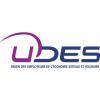Organisations
Rail Strategy Plateform (European Commission - VPt KALLAS) : intervention de R.A. représentant salarié du secteur ferroviaire
Personal contribution to meeting the Rail Platform Strategy (EU - Siim Kallas expert group - Brussels) english version
RAIL STRATEGY PLATFORM
(European Commission - Siim KALLAS Vice Pt - Transports Commissionner)
Experts group (21 people as high rank managers and pts of all parts of Railways Transports)
March 2012
Personnal contribution of Remi AUFRERE
(Railways Union Rep. France)
Not présent for the meeting in march 2012 (due to a S.America travel)
Fourth railway package - challenges to Be addressed:
how to establish has true Single European Railway Area
- Legal barriers to access to domestic passenger market. Despite significant developments in establishing has European market for rail transport services, domestic passenger transport remains largely closed to competition and services suffer from has low intermodal level off quality and efficiency which leads to poor performance. This situation edge Be attributed to presence off various barriers and patchwork off regulatory modes, which hamper market entering accesses off new, create network inefficiencies and market distortions.
Proposals (R.AUFRERE)
It appears that the main obstacle with the total intermodality does not reside in the existence of modes of regulation different (law the labor in particular) but on the contrary by a lack from coordination of the public authorities, weakness produced partially by a lack of financing more than of political will.
The Commission must develop innovating tools of financing allowing to encourage the continuity of information and the continuity of the voyage on the intermodal ways. This in the other hand of obligation of means by the operators of public and private transport (identical obligations some is the legal structure of those).
A consistent document “The European Railway Agency - Future Roles - has discussion paper prepared by the Agency version 4.0 20th December 2011” was recently diffused by the ERA.
Among the dynamic aspects of the operation of the agency, it is the participation of the experts named by the trade-union organizations of the railway sector. These experts know at the same time the technique and often have the professional practice which allows a relevant point of view of the actor of the daily newspaper.
It is necessary to develop this participation while carrying in several trade-union experts by study undertaken by the ERA. These experts must be released from their usual community activity and maintain the integrality of their remuneration and rights during the achievement of their missions by their public and private employers.
Unbundling (European Unions Reference mark. Analysis)
a critical text was send directly by email to the VP and the participants.
ERA, interoperability and safety -
Six years after its Establishment ERA is now fully operational and plays important year national role in harmonizing safety and interoperability requirements and progressively replacing them with common technical specifications and common safety targets and methods. [SK wants this last - less need to discuss it with the Platform]
Proposals (R.AUFRERE)
A consistent document “The European Railway Agency - Future Roles - has discussion paper prepared by the Agency version 4.0 20th December 2011” was recently diffused by the ERA.
Among the dynamic aspects of the operation of the agency, it is the participation of the experts named by the trade-union organizations of the railway sector. These experts know at the same time the technique and often have the professional practice which allows a relevant point of view of the actor of the daily newspaper.
It is necessary to develop this participation while carrying in several experts by study undertaken by the ERA. These experts must be released from their usual community activity and maintain the integrality of their remuneration and rights during the achievement of their missions by their public and deprived employers.
Which role for the ERA?
Today, the ERA must be initially recognized as an essential technical agency on safety and railway interworking. That must remain the heart of its activity. It is preferable that it is consolidated and reinforced on these two subjects which enables him to be strong (and impossible to circumvent) and to remain politically independent compared to the direct requirements of “free competition and not distorted”.
The will evoked to transform the ERA into police officer of railway can be to accept only through the respect of the conditions of railway safety and the facilities for the interworking recognized like a dynamics for the development of our mode.
Which role (obligations and duties) for the national agencies of railway safety?
I raised the crucial question of the transparency of the studies and work of the railway national agencies of safety.
The force of the railway mode it is that of the method of the experience feedback for the accidents but also within the framework of the incidents which isolated or repeated (“almost accidents”).
Certain railway companies (in particular public) created in their center of the places of exchanges between directions and trade-union organizations. With the acceleration of the opening to the competition of the transport of freight then travellers, these authorities for the majority do not meet any more.
The explanation is simple: why be virtuous whereas the “new entrants” do not have any obligation of exchange with their any transparency and staff representatives on the incidents and difficulty by their activity on the national rail networks.
Do the national railway agencies of safety have in particular as an obligation to distribute a very synthetic and statistical annual report, as well as the sending of recommendations even injunction going until the potential withdrawal of the licensing of the failing operator?
The national railway agencies of safety must constitute in their center a railway commission of safety which must aim paritairement to study (Directions of railway companies and representative Trade-union organizations of employees) the exemplary cases accidents serious incidents on the national rail networks. The cases having been the subject of particular recommendations even of warnings must be imperatively evoked in this Commission.
It appears today unacceptable that a strong suspicion weighs on railway safety with the arrival of new operators on this means of transport who do not have experience of the companies present since longer.
It is not a question to use the theme railway safety as brake with the opening to competition but to analyze in greatest possible objectivity, the convergent elements at the new risks.
The whole of the European citizens and their elected representatives (the European Parliament and nationals) could not be held in the ignorance of the problêmes and risks weighing on the European railway network.
It is also the confidence citizen towards the European Commission and all leaders which is posed by this subject.
Of course, it is advisable to give a form and a method which allows this treatment and this study right of the difficulties of the rail-bound transport with obligations for the national agencies of safety as for the operators but also of the rights for the companies to act in full safety.
The Platform Strategy Group Rail was created by the Vice President of the European Commission (Transport Commissioner) Siim Kallas with the aim to consider a draft fourth European rail package.
It is composed of 21 persons, high levels of experts, business leaders Rail (DB group, SNCF, INFRABEL, Port of Barcelona, RFF, European Ass of passengers, etc ...).
It meets at the headquarters of the European Commission in Brussels. Debates are in English only.
(traduction rapide)
Le groupe Plateforme Stratégie du Rail a été créé par le Vice Président de la Commission Européenne (Commissaire aux transports) Siim KALLAS dans l'objectif de réfléchir à un projet de 4ème paquet ferroviaire européen.
Il est composé de 21 personnes, experts de haut niveaux, dirigeants d'entreprises ferroviaires (groupe DB, SNCF, INFRABE, Port de Barcelone, RFF, Fédération Européenne des usagers des transports, etc...).
Il se réunit au siège de la Commission Européenne à Bruxelles. Les échanges s'effectuent en langue anglaise uniquement.
Le seul "représentant" officieux des salariés(RA) l'est à titre individuel (invitation du VPt Kallas) et n'est pas mandaté politiquement par une ou plusieurs organisations européenne ou syndicales nationales (mais ne se trompe pas de positionnement).





